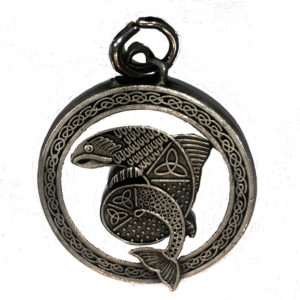Fáilte (Welcome) › Forums › General Discussion (Irish and English) › simple beginner’s pronunciation question
- This topic has 1 reply, 1 voice, and was last updated 8 years, 9 months ago by
Héilics Órbhuí.
-
AuthorPosts
-
July 26, 2015 at 9:11 am #36862
mairnéalach
ParticipantDia dhuit, is mise Paul. I am a complete beginner at learning Irish: I’ve done the Pimsleur course, a few Bitesize Irish Gaelic lessons, and just started Gaeilge gan Stró, so apologies that this such a trivial question. My problem is with how to pronounce the phrase I started off with, namely “Dia dhuit” – specifically, the “dhuit” part.
I’ve picked up a few basic things. I know there are regional variations. I think I am right in saying that the pronunciation of dhuit is affected here because there is a vowel preceding it, and also that some people would spell it “duit” and pronounce it slightly differently. Nonetheless, in what seems like much the same situation (as part of the same phrase and pronounced by Munster dialect speakers) I have heard it said as something like “gut” “hut” and “hutch”, and in the phrase “cad is ainm duit” it sounds more like “ditch”.
I know it’s good to not get too hung up about these things very early on in learning a language, and I’m sure a native speaker would understand what I was saying, but this one is driving me mad and I’d like to understand. I’ve tried listening to online radio but of course nobody says “Dia dhuit”.
Not my main question but closely related: in the Gaeilge gan Stró course, someone says “Gia daoibh” where this time the D sounds almost like an R: is that simply a more gutteral pronunciation of the “hut(ch)” versions of dhuit?
And making the most of this opportunity, why does “Conas atá tú” sometimes have atá and sometimes tá and apparently is pronounced either way?
I’ve really enjoyed the little I’ve done so far, it’s a very interesting language. I’m learning because my wife’s family is from Waterford and we are going to be moving to Ireland soon: probably nearer to Cork but certainly within Munster, so that would probably be the pronunciation I would opt for if this is mostly down to regional variation. I’ve also ordered a grammar book that might help me with some of these things 🙂
Many thanks in anticipation!
July 26, 2015 at 8:46 pm #45797Héilics Órbhuí
ParticipantIt’s actually a good question. I don’t think the answer is really that straight-forward. You are right in that, technically, the lenition of “duit” is mostly because of the vowel preceding it. But in some dialects (especially in Conamara) I believe they basically lenite all forms of “do” (including the prepositional pronouns, dom, duit, etc) regardless of preceding letter. Often they’re pronounced with a more hard “g” sound instead. Notice how when talking about age, you’ll hear “d’aois” pronounced like “geesh”. “De” and “den” are quite often pronounced “ge” and “gen” respectively. Even some other words fall into this paradigm, like “dul”, which is usually said as “gul”. I’m definitely not an expert on this so someone may correct me on all of this, of course.
The lenited “dh” is that sound that doesn’t exist in English, namely that voiced guttural consonant similar to French or German “r”. I’m not sure about the gut/hut/hutch pronunciation you’re talking about – I think in every dialect I’m aware of, the vowel is more like an “i” than a “u”. The final “t” will often make the word sound like “ditch” but really it’s a bit different – the tip of the tongue should be touching the ridge behind your top teeth just like you would if you were saying “t” but not pressing very hard so you’re letting more air pass through.
You’ll not only hear variation in how these are treated between dialects but also speakers themselves will change how they say it. According to my own observations, Irish speakers tend to do whatever they think sounds the best in a given situation. I’ve heard Connacht speakers say “agam” in one sentence and say “a’am” in the next. If you’re going to be in a certain area, you’ll quickly figure out what people there say and it shouldn’t be hard for you to just imitate them. 😉
Regarding “atá”, the initial “a” is really not generally pronounced but you will sometimes you’ll hear it creep in there as a very unstressed vowel. You’ll sometimes also (especially in Munster) hear this as “(a)thá” instead.
I hope I’ve been accurate and not led you astray. There are some more knowledgable people here than myself so they might refute some of what I’ve said but this is just my experience. Hope it helps.
-
AuthorPosts
- You must be logged in to reply to this topic.
